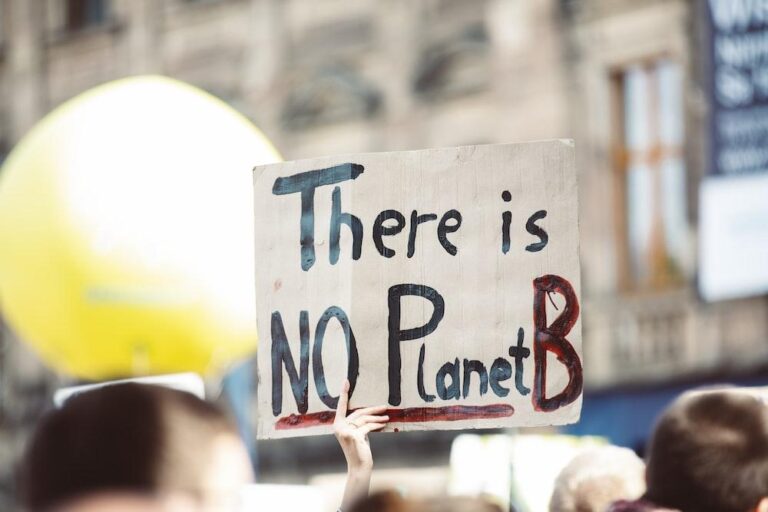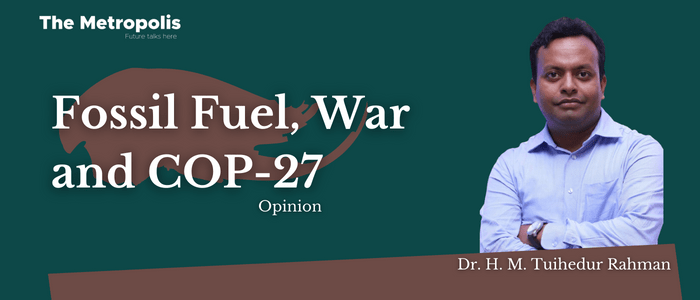With the trumpet toll of the Russian military invading Ukraine, a shadow of political distrust and economic uncertainty has swept over the world. In international political frontiers, both the Western block and Russia are capitalizing on their strategic advantages over food and fuel to draw political support from less powerful ones who are struggling to conceive a diplomatic balance between the wrestling two. An interdependent global order which has been dreamt of to help solve global common problems like climate change and environmental protection is now at stake and the idea of defying mutual interdependence is getting currency across countries. Yet, little has been achieved to defend the cherished dream. We have observed Sri Lanka collapse in the face of economic turmoil with few other countries still at the fringe, while the global West – the so-called architects and self-proclaimed protectors of the interdependent global order – have offered no visible gesture of compassion. This political retrospective has already set an example to believe that every country is on its own when facing economic and socio-political dismay. This belief will put dents in inter-governmental political issues like climate negotiation.

President Biden entered the White House like a Santa Clause for the environmentalists. He brought back America to the Paris Climate Agreement and revoked the Keystone XL pipeline to show his firm commitment to environmental protection. Tired of his predecessor Donald Trump, the European political leadership embraced him like a long-lost brethren hoping that now they would be able to make a fair deal on trade, energy, and security issues with their Chinese and Russian counterparts. But it took only one winter for their dream to turn into a mirage. Europe is trembling in fear of chilly nights to come, and Saudi Arabia – the erratic sweetheart of the West – took it as a perfect opportunity to swell their petrodollar accounts by engineering fuel supply and price. Even the Western trade ban on Russia has found dormant for China and India – the two biggest populations of the world – have stepped in to purchase cheaper Russian fuel.

Are we to believe that the European politicians did not foresee an energy crisis in the making? European countries had heavily invested in developing Russian energy infrastructure and supply lines since the 1970s and kept maintaining them even after the collapse of the Soviet Union hoping that this would function as insurance against potential Russian security threats. It also made European leadership audacious to make ambitious carbon footprint reduction commitments without raising fuel prices or agitating their pro-environment vote banks. They labeled Russian gas as a fuel of transition to a carbon-neutral economy, while Russia had been patiently working on rebuilding its economic and political influence on the post-Soviet world.
Western countries are hurrying to find alternatives to Russian fuel. Germany has already rejuvenated their coal power capacity to maintain its energy supply throughout this winter. Even Norway – a country known for its green economy and climate leadership – has turned to the EU’s new fossil fuel bank and has been planning for an offshore oil and gas exploration project in the Barents Sea. If approved, this would be the world’s northernmost oil exploration project and might threaten some of the most pristine ecosystems of the Arctic Circle. Plausibly, none of the non-renewable energy infrastructures will be phased out until a profit turnover is made even if the war ends anytime soon. European countries have also stormed into the international fuel market tickling the fragility of the post-COVID global economy with inflation which many developing countries have fallen victim to. With the looming shortfall of food and energy, most of the food and energy deficit countries will intensify agriculture and look for fossil fuels with high price risking their economic stability. Agricultural intensification means adding more land to farming, which may cause increased carbon emissions and forest destruction.
World leaders are getting together in Sharm el-Sheikh for COP-27 to report on the progress of implementing their commitments made at the Glasgow Conference. What report are they carrying with them? The latest UN climate report finds negligible improvement in emission reduction which falls far short of the Paris ‘goal with no credible pathway to 1.5-degree Celcius in place’. The newly appointed British Prime Minister Rishi Sunak’s ‘to go or not to go’ to Sharm el-Sheikh drama is no less than an ideal example of how western politicians’ myopic view pushes climate crisis into long grasses. Before agreeing to go after much criticism, he had opted to repair his country’s falling economy, although it was not clear how he could do it without reasonably addressing climate change issues, while this year his country has experienced one of the hottest summers in recent times. This is how the ‘credible pathway to 1.5-degree Celcius in place’ goes missing.
The Russian war on Ukraine will appear as a decisive factor in the COP-27 negotiation. As we have witnessed throughout the war, no party will make any compromise for the sake of a livable world. Like before, we will be missing committed and farsighted leadership in Sharm el-Sheikh, and in its absence, all we can do is get prepared for another round of fierce debate, big commitments, and ultimate inaction.
Dr. H. M. Tuihedur Rahman is a Post-Doctoral Research Fellow at the Department of Agricultural and Resource Economics at the University of Saskatchewan in Canada



